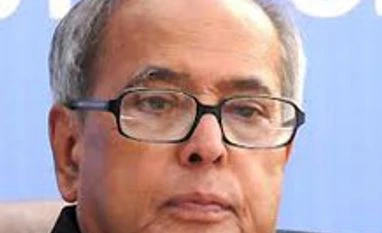"A matter of concern is the CAD (current account deficit), which was 5.4% of GDP during April to December, 2012, is very high. Though we have managed this deficit through capital flows, we have to increase our exports to bring it to a sustainable level," Mukherjee said at a function of the Indian Institute of Foreign Trade (IIFT).
The CAD occurs when a country's total imports of goods, services and transfers are more than total exports of goods, services and transfers.
"The compound average growth rate of our exports during 1991-92 to 2000-01 was 10.7%. This has increased to 19.1% during the period 2001-02 to 2012-13," the President said.
India's exports have increased from $17.9 billion in 1991-92 to $300.6 billion in 2012-13.
He said that a strong revival of the global economy is expected in 2014.
"At a time when global demand is yet to firm up, there is a need to strengthen our export industry," he added.
However, Mukherjee said that there is a need to ensure the availability of enough food in the country.
"While we must be proud of our performance in commodity exports, there is a need to monitor and exercise caution. We must ensure the availability of enough food in the country at all times. Every citizen should have access to affordable food," he said.
The country is the world's largest rice exporter and second largest wheat exporter.
On India's economic growth, he expressed confidence that India will bounce back to the high growth trajectory.
"The GDP growth in 2012-13 has been estimated at a muted 5% but I am confident that we will bounce back," he said.
The President said recovery of the economy from the impact of global financial crisis of 2008 was stronger than initially seen.
"During 2009-10 and 2010-11, India�s economy grew by 8.6 per cent and 9.3 per cent respectively though the growth rates earlier estimated for these years were much lower," he said.
"The ongoing global financial crisis has decelerated our economic growth in the last two years," he added.
He also said that increased trade liberalisation and economic cooperation will not count much unless they result in tangible benefits for people.
"Hence, thrust should also be placed on meeting other objectives like employment generation and regional development. Our export sector should be able to drive the socio-economic development of our country," he said.
Mukherjee said that to reduce dependence on imports, India has encouraged domestic manufacturing for inputs to export industry.
You’ve reached your limit of 10 free articles this month.
Subscribe now for unlimited access.
Already subscribed? Log in
Subscribe to read the full story →

Smart Quarterly
₹900
3 Months
₹300/Month
Smart Essential
₹2,700
1 Year
₹225/Month
Super Saver
₹3,900
2 Years
₹162/Month
Renews automatically, cancel anytime
Here’s what’s included in our digital subscription plans
Access to Exclusive Premium Stories
Over 30 subscriber-only stories daily, handpicked by our editors


Complimentary Access to The New York Times
News, Games, Cooking, Audio, Wirecutter & The Athletic
Business Standard Epaper
Digital replica of our daily newspaper — with options to read, save, and share


Curated Newsletters
Insights on markets, finance, politics, tech, and more delivered to your inbox
Market Analysis & Investment Insights
In-depth market analysis & insights with access to The Smart Investor


Archives
Repository of articles and publications dating back to 1997
Ad-free Reading
Uninterrupted reading experience with no advertisements


Seamless Access Across All Devices
Access Business Standard across devices — mobile, tablet, or PC, via web or app



)
